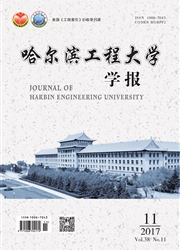

 中文摘要:
中文摘要:
为提高作业调度的整体性,建立了集装箱码头作业调度双层规划模型,其中上层为装卸桥调度优化模型,下层为集卡动态路径模型,通过上下层模型间的反馈与相互作用决定集装箱码头作业调度的整体优化方案.为了求解模型,设计了基于遗传算法的求解方法,并且应用实际算例对模型和算法的有效性进行了验证.计算结果表明双层规划模型与算法不但可以降低集卡空驶距离、减少所需集卡数量,而且可以缓解码头内交通拥挤、提高作业系统的可靠性.
 英文摘要:
英文摘要:
A bi-level programming model for container terminal scheduling is developed to improve the integration of the operation scheduling in container terminals. The upper-level is quay crane scheduling model, and the lower-level one is dynamic yard trailer routing model. The feedback and reciprocity between the two sub-models form the optimal scheme for container terminal scheduling. A genetic based algorithm was designed to solve the model and numerical tests were provided to illustrate the validity of the model and the algorithm. The results indicate that the bi-level programming model and its algorithm can not only greatly decrease the empty travel distance and the needed yard trailers, but also decrease the road traffic congestion and improve the reliability of operation systems in container terminals.
 同期刊论文项目
同期刊论文项目
 同项目期刊论文
同项目期刊论文
 期刊信息
期刊信息
